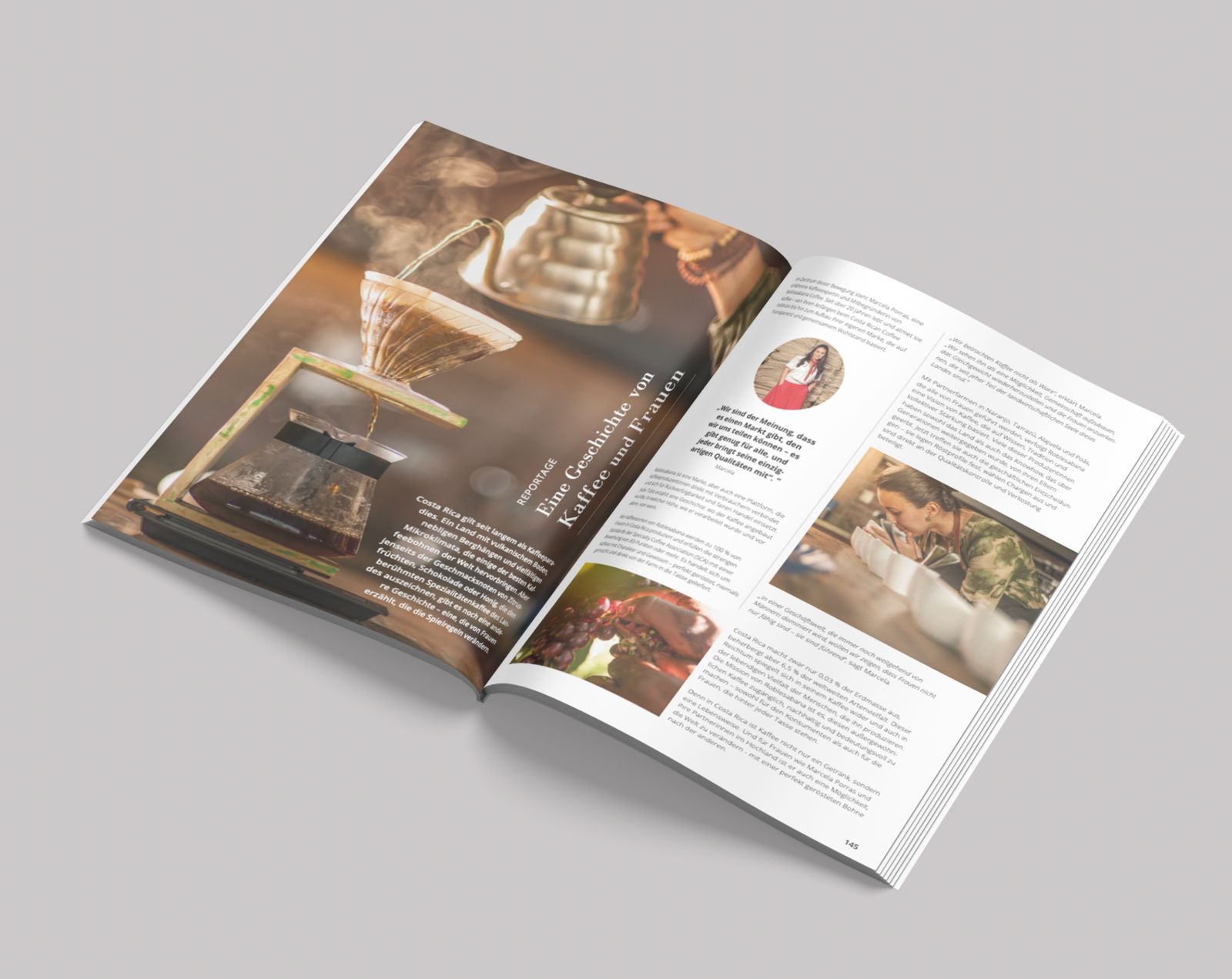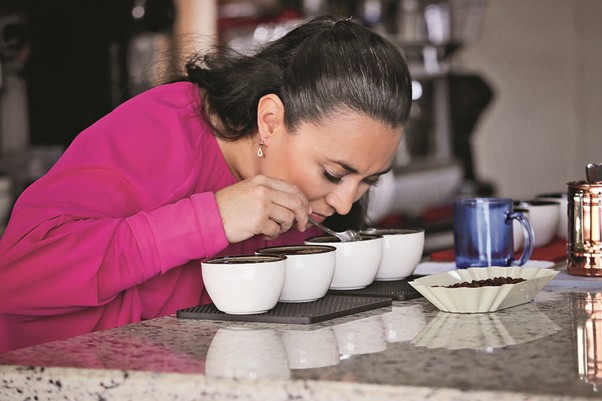
La Nación, Perfil Magazine
By: Didier Fernández and Heilyn Gómez V.
September 4, 2025.
Mention of our founder and director in Perfil Magazine of La Nación.
You can read the article in La Nación here

Discover the story of visionary women who decided to break stereotypes and take their products and talents beyond our borders.
Marcela Porras, co- creator of Roblesabana, bet on specialty coffee when almost no one else did. Today, her brand is sold in the United States, Europe, and Canada, carrying with it the work of farms led by women coffee growers.
Ten years ago, Marcela Porras decided to leave behind job stability to embark on an uncertain but exciting journey: creating a specialty coffee brand that would give visibility to women producers. That’s how Roblesabana was born, a company that went from selling coffee online—back when it was still a novelty—to establishing itself in supermarkets, global platforms like Amazon, and demanding international markets. Her story is an example of perseverance, resilience, and women’s empowerment.
In an interview with Perfil Magazine, Marcela shares how her project started, the challenges she faced, and the keys that have allowed her to consolidate a business that transcends borders.
Roblesabana was born ten years ago. I was working at the Costa Rican Coffee Institute (Icafé) and, although I loved my job there, I felt I needed to do something more. At that time, there were no specialty coffee brands in the country, so I decided to start a business with my sister. We created an online store with the idea of also taking the product abroad.
When we started, selling coffee online was something very new—almost no one was doing it. In addition, I worked in advertising and audiovisual production while we were building the brand. Little by little, we managed to enter chains like Auto Mercado, and later, thanks to support programs from Procomer, we brought our coffee to Amazon and other international markets.
We sell through Amazon in the United States, and from there we have also shipped to Canada. In addition, we have reached clients in Switzerland, Luxembourg, England, and Germany. At first, we bought two or three sacks of coffee per farm; today we acquire between 200 and 300. The growth has been very significant.
Since my time at Icafé, I have been part of the Women in Coffee Alliance, of which I am currently president in Costa Rica. I have always been interested in highlighting the role of women in the production chain. We currently work with farms in Tarrazú, Naranjo, Carrizal, and Sabanilla de Alajuela—all led by women. For me, that has been key: creating a product that is not only of high quality but also has a social and gender impact.
I would say three:
Yes, during the pandemic. I thought I might have to go back to working as an employee. But that was when Roblsabana proved its value. We’re not just a regular supermarket coffee, but one that people appreciate as an experience and that also represents social awareness. That allowed us to stay afloat.
It’s a daily job. Stress is the great pandemic of our times, but I try to keep joy in what I do, build community, and remember that I’m not alone. Family, friends, and the support network are fundamental to maintaining balance.
Training and community. There are many options in Costa Rica: INA, MEIC, Icafé, and Procomer, which has excellent programs. In addition, you have to connect with other people, network. That opens doors and helps you grow.